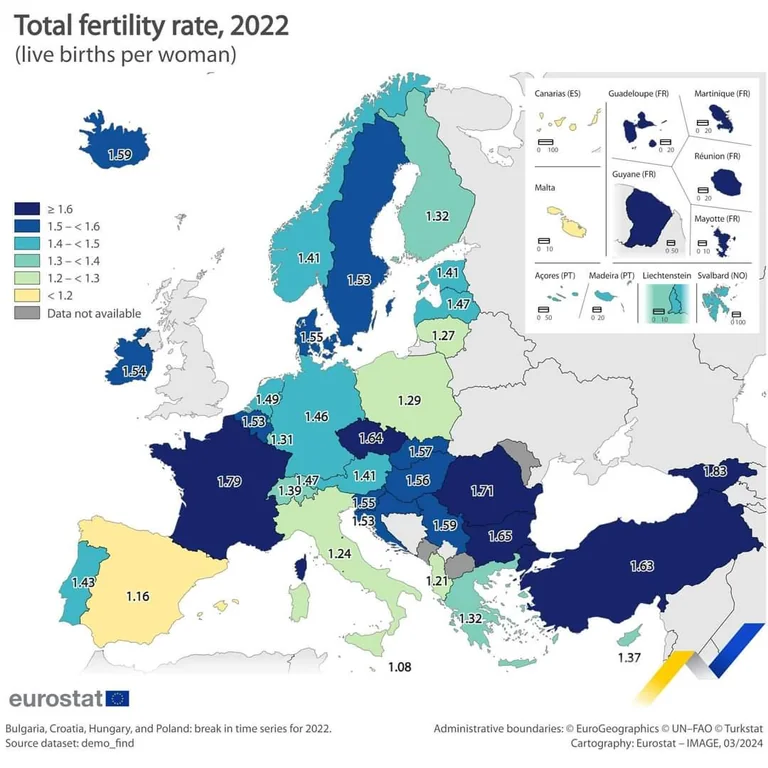There are enough people in Europe, I don't know why everybody is so concerned. Most people are doing bullshit jobs too, so those people could be doing something more productive, if that is something you're worried about.
YUROP
A laid back community for good news, pictures and general discussions among people living in Europe.
Other European communities
Other casual communities:
Language communities
Cities
Countries
- !albania@lemmy.world
- !austria@feddit.org
- !belgique@jlai.lu
- !belgium@lemmy.world
- !croatia@lemmy.world
- https://feddit.dk
- !deutschland@feddit.org / !germany@feddit.org
- !eesti@lemm.ee
- https://lemmy.eus/
- !finland@sopuli.xyz
- !france@jlai.lu
- https://foros.fediverso.gal/
- !greece@lemmy.world
- !hungary@lemmy.world
- Italy: !news@feddit.it
- !ireland@lemmy.world
- !northern_ireland@feddit.uk
- !norway@lemmy.world
- !thenetherlands@feddit.nl
- Poland: !wiadomosci@szmer.info
- !portugal@lemmy.pt
- !romania@feddit.ro
- !suisse@lemmy.world
- !sweden@lemmy.world
- !ukraine@sopuli.xyz
- !unitedkingdom@feddit.uk
- !wales@lemm.ee
One of the problems that worries people is that people live longer and longer and if fewer children are born the average age of the population will increase. That means that there will be more and more old people that don't work and likely require extra care therefore reducing the amount of normal workers even more.
Will society survive? Yes, obviously but it could probably have so severe consequences for people, and the countries.
Wow, that is concerningly low. What is keeping France so high?
A bit old, but still
Several evaluations suggest that policies that provide financial support to families or paid leave at the time of childbirth have a positive, but rather limited, impact in fertility. Of all the policies introduced over the years, provision of childcare services appears to be the most effective in encouraging families to have children and women to remain in the workforce.
French family policies provide a diversified system of supplementary resources in the form of money, time and services needed to raise children. The State provides support to diversified types of families with children at ages from early to late childhood. Another key ingredient has been the high stability of family policies, based on strong popular support. This stability gives confidence to families that they will benefit from continuous support from the birth of a child until entry into the school system and beyond. Such confidence creates a favourable environment for the decision to have children
https://www.un.org/en/development/desa/population/events/pdf/expert/24/Policy_Briefs/PB_France.pdf
Ménage à trois probably.
Hmm, I was thinking "well, that's an improvement, but still too high".
Rates under 2 mean we're under replacement rates, not that it's a bad thing just pointing it out.
It will be a lot easier to save the planet, and obtain full sustainability if we have lower birth rates for a generation or two. The population has more than doubled since I was born, and it's evident in everything. We're feeling the strain in every facet of our lives. I know this is an unpopular opinion because everyone automatically assumes you're pro-eugenics or other unpopular ideologies when you suggest that we reduce our birth rates, but I genuinely believe it would have a net-positive impact on the world.
I'm with you actually, it would definitely be easier to reduce consumption by simply having less people. I just wanted to point it out because I feel like it's a stat that might get misinterpreted by a lot of people that there's 1.xx% babies per person when it's not.
Rekt
